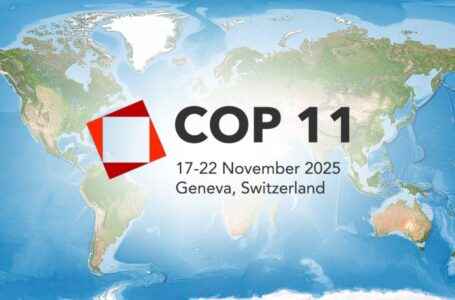A new report has raised alarm over the growing influence of Bloomberg Philanthropies and undisclosed donors on the World Health Organization (WHO), warning that global health policy risks being shaped by private interests rather than national priorities.
The report, “The Next Chapter Unfolds: Bloomberg and WHO’s Expanding Shadow Over Global Health Sovereignty,” alleges that donor-driven agendas, especially in tobacco control, are increasingly embedded into domestic laws, often clashing with harm reduction and local realities.
The report comes as governments prepare for the 11th session of the Conference of the Parties (COP11) of the WHO Framework Convention on Tobacco Control (FCTC) in Geneva later this year. It argues that global health governance is being reshaped by powerful financial actors — notably the WHO’s largest private donor, Bloomberg Philanthropies.
Bloomberg Philanthropies is the biggest private funder of tobacco control in low- and middle-income countries and the architect of the WHO’s MPOWER strategy. The report claims the group, through organizations such as the Campaign for Tobacco-Free Kids (CTFK) and Vital Strategies, has promoted a uniform prohibitionist approach to tobacco policy worldwide.
Transparency concerns have intensified following reports by BMJ Global Health and The Guardian that the WHO Foundation has accepted growing amounts of undisclosed or “dark money.” By the end of 2023, 60% of corporate funds and 80% of large donations came from anonymous sources.
Anil Soni, CEO of the WHO Foundation, defended the practice, saying the organization avoids contributions that present conflicts of interest and that anonymity protects companies from “potential targeting.” The WHO did not respond to Guardian inquiries.
In the U.S., a July 2025 House Oversight Committee report accused Bloomberg Philanthropies of using its vast resources to influence domestic policy through legal activism and personnel placement, sidestepping democratic oversight.
The report also cited incidents in Pakistan, the Philippines, and India as examples of “foreign-funded advocacy” swaying national policy. In early 2025, Pakistan’s Ministry of Interior reportedly shut down Bloomberg-linked groups for “financial irregularities.” In India, a 2017 Reuters investigation found Bloomberg-funded NGOs lost their licenses after lobbying that bypassed democratic review.
In the Philippines, the Food and Drug Administration drew controversy in 2020 when it accepted Bloomberg funding for tobacco control, triggering a congressional inquiry. Lawmakers and health experts warned that the foreign grants could compromise the agency’s independence just as the government was implementing legislation on e-cigarettes and heated tobacco products.
The study concludes that the FCTC, originally designed to guide member states, has become a conduit for external influence or a form of “philanthropic colonialism.” Since 2005, Bloomberg has spent over $1.6 billion on tobacco control through its global network of partners.

It calls for sweeping reforms before COP11, including transparency in donor funding, independent accountability for conflicts of interest, inclusion of harm-reduction advocates, and respect for national sovereignty. Without reform, the report warns, the FCTC risks becoming “a vehicle for donor-driven agendas that compromise national sovereignty and evidence-based health policy.”



















